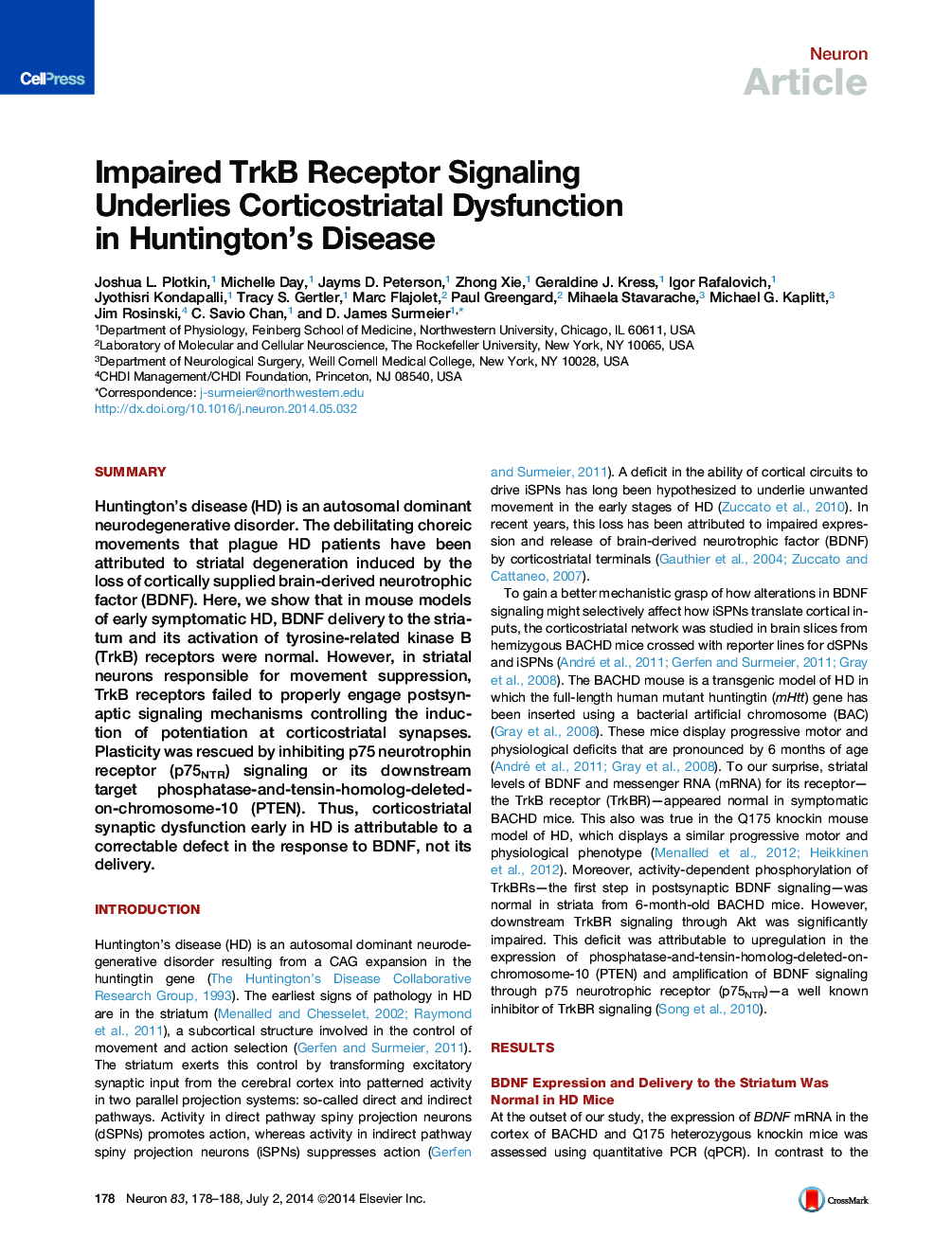| کد مقاله | کد نشریه | سال انتشار | مقاله انگلیسی | نسخه تمام متن |
|---|---|---|---|---|
| 4321114 | 1291573 | 2014 | 11 صفحه PDF | دانلود رایگان |

• Striatal BDNF and TrkB receptor abundance were normal in symptomatic HD models
• In these models, postsynaptic TrkB receptor signaling was impaired in iSPNs
• This deficit was rescued by suppression of p75NTR signaling
• These results pointed to an alternative therapeutic strategy in HD
SummaryHuntington’s disease (HD) is an autosomal dominant neurodegenerative disorder. The debilitating choreic movements that plague HD patients have been attributed to striatal degeneration induced by the loss of cortically supplied brain-derived neurotrophic factor (BDNF). Here, we show that in mouse models of early symptomatic HD, BDNF delivery to the striatum and its activation of tyrosine-related kinase B (TrkB) receptors were normal. However, in striatal neurons responsible for movement suppression, TrkB receptors failed to properly engage postsynaptic signaling mechanisms controlling the induction of potentiation at corticostriatal synapses. Plasticity was rescued by inhibiting p75 neurotrophin receptor (p75NTR) signaling or its downstream target phosphatase-and-tensin-homolog-deleted-on-chromosome-10 (PTEN). Thus, corticostriatal synaptic dysfunction early in HD is attributable to a correctable defect in the response to BDNF, not its delivery.
Journal: - Volume 83, Issue 1, 2 July 2014, Pages 178–188